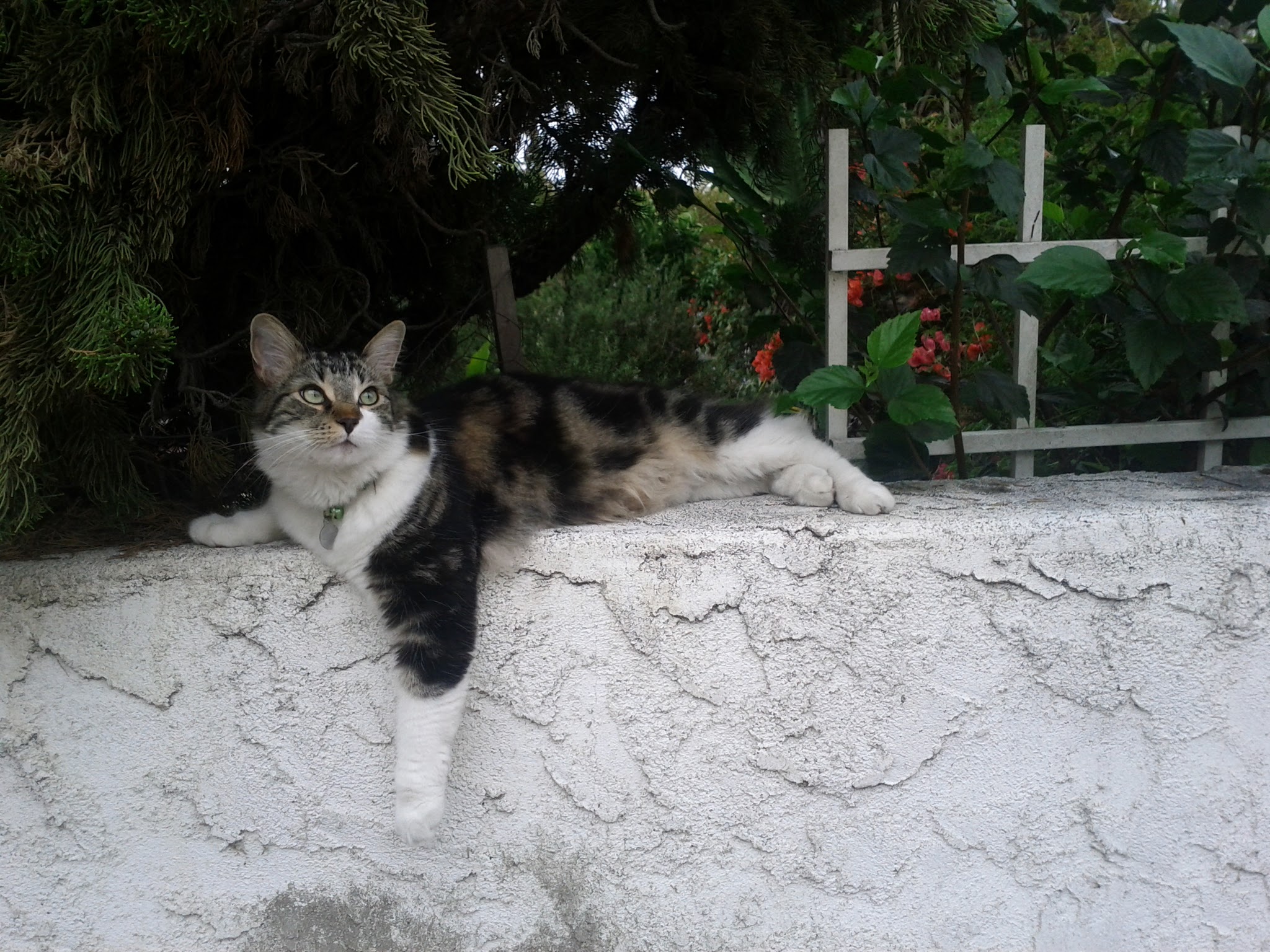This date, three years ago, was a Sunday. Kuma loudly meowed, demanding to go outdoors, earlier than usual. He was untypically agitated, pacing around the front door and sliding glass that opened onto a small balcony. I usually let him out after first light—sometimes as early as 6:30 but usually not before 7, and I started the trek with him into the back alley.
But this day, I broke routine, letting him out at six, into darkness. He went alone. I vividly recall the majestic Maine Coon looking up at me, making eye contact—as if to say “You’re not coming with me today?”—before slipping out our apartment complex’s back gate. I never saw him again.
Regret is the clinging emotion that barbs into your soul. You ask “What if I had done this or that differently?” There never is answer, or resolution. Not in this universe! Perhaps on some parallel Earth, Kuma lives because I waited that extra hour.
Acceptance, particularly in the absence of information, is the escape emotion. It darts and dashes under cacti and bristles like a desert mouse. You don’t easily catch it. If ever. Three years following Kuma’s disappearance, we still don’t know with any certainty what happened, even though evidence suggests tragic end.
Sixteen days after the 18-month-old cat vanished, a city worker phoned. He found Kuma’s collar deep in a canyon on the next street. Coyotes. What else could it be? Closure is a blessing, if you can get it. The phone call meant much to my wife and I.
Not that I ever accepted. Perhaps because I bear the most regret, having made the fateful decision to break the morning ritual. Three years later, I still look for Kuma, whenever returning to the apartment complex. I expect him to gallup from the bushes, or slip under the gate to greet me. I search for him when driving in the neighborhood.
But in a way, I do accept. For those first 15 nights I slept on the living room couch, shivering in the cool air of the open front door. Waiting for our proud Coon to come home. On the sixteenth night, holding Kuma’s collar in hand, I shut and locked the door. Over the weeks that followed, Anne and I made nearly daily pilgrimage to the San Diego Animal Shelter, which website I checked several times a day.
There we spotted a friendly, and vocal, ginger cat on Feb. 4, 2012; a Saturday. The Shelter named the handsome feline Dermott. With each following visit, he waited, unclaimed, which so surprised because Dermott is like the Robert Redford of cats. But I wasn’t ready to adopt. Kuma was so tough, I could imagine him limping home injured and gaunt. Even weeks later.
Consider the photo above, taken the day after the cat’s hit-and-run accident in September 2011. He was unstoppable. Then there is his origin-story. On a late-August 2010 day, with temperatures sizzling past 32-degrees Celsius, a gentleman worked in his backyard. The family, who were neighbors to one of my daughter’s high school classmate friends in La Mesa, Calif., had a reputation for being cat lovers. This day, as he stopped from clippings, to wipe sweat from brow, he heard squeaky sounds, which he followed to a bag of kittens someone had dropped over the fence. They might have died in the heat, otherwise.
With the kittens fed and cared for indoors, he returned to yard work, moving to the front of the house. There he heard mewing. One of the kittens had escaped the plastic grocery bag. That was Kuma, or what my daughter would call him when we adopted him about two weeks later.
Kuma means bear in Japanese, a language my daughter studied for three years during middle school. She would later name the ginger cat, whom we adopted six weeks after our Maine Coon disappeared, as Neko, which is Japanese for cat.
I sometimes joke with my wife about French endings. How a film would be if instead made in France, where so many movies close with bitter end or unexpected twist. Seriously, I should Tumblr the idea of giving French endings to popular films.
In the unexpected twist to Kuma’s tale, he escaped, with injuries, from a Coyote’s jaw—to be rescued by a neighbor three or four doors down the street. All these years, he was close-by, cared for, and comfort to a lonely lady. Maybe a widow, who kept Kuma inside because she feared to lose him and for his healed wounds, which ended outdoor meanderings.
That’s how I like to remember Kuma. If not in this universe, I hope it’s so in another.
Photo Credit: Anne Wilcox
